The inclusion of organic foods in the school feeding program of Marechal Cândido Rondon, Paraná, Brazil
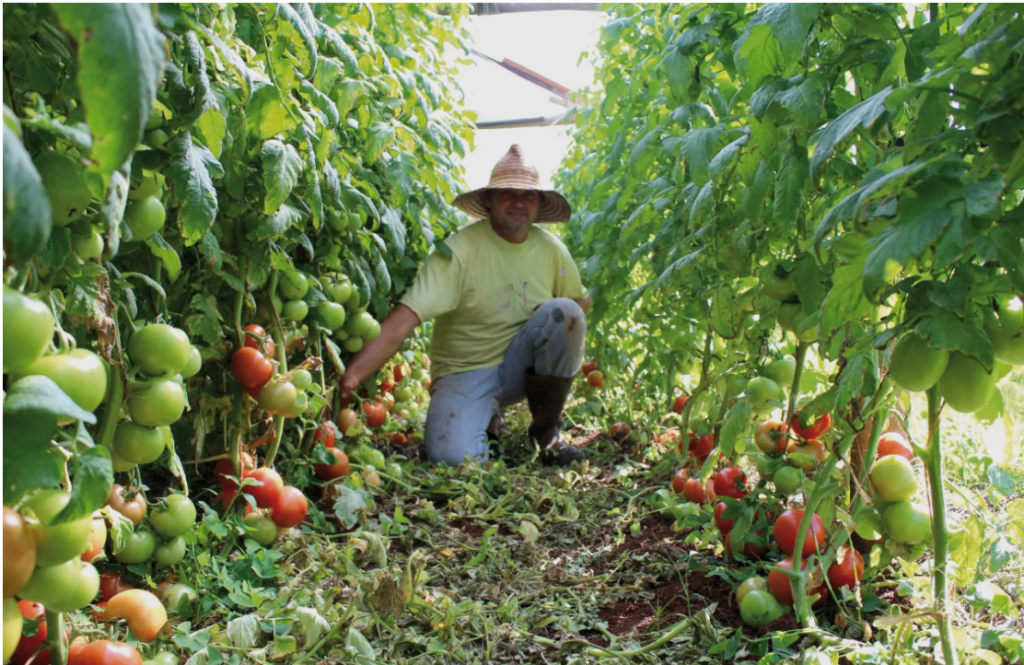
(Municipality in the state of Paraná in southern Brazil, with an estimated population of 54,031 inhabitants) Background Since the approval of Law Nº 11.947, on June 16, 2009, which established the purchase of 30% of family farming products for school meals, all 5,570 municipalities in Brazil had to adapt to reach the target stipulated by […]
Food delivery during the pandemic in Santarém, in the Amazonia Region, northern Brazil
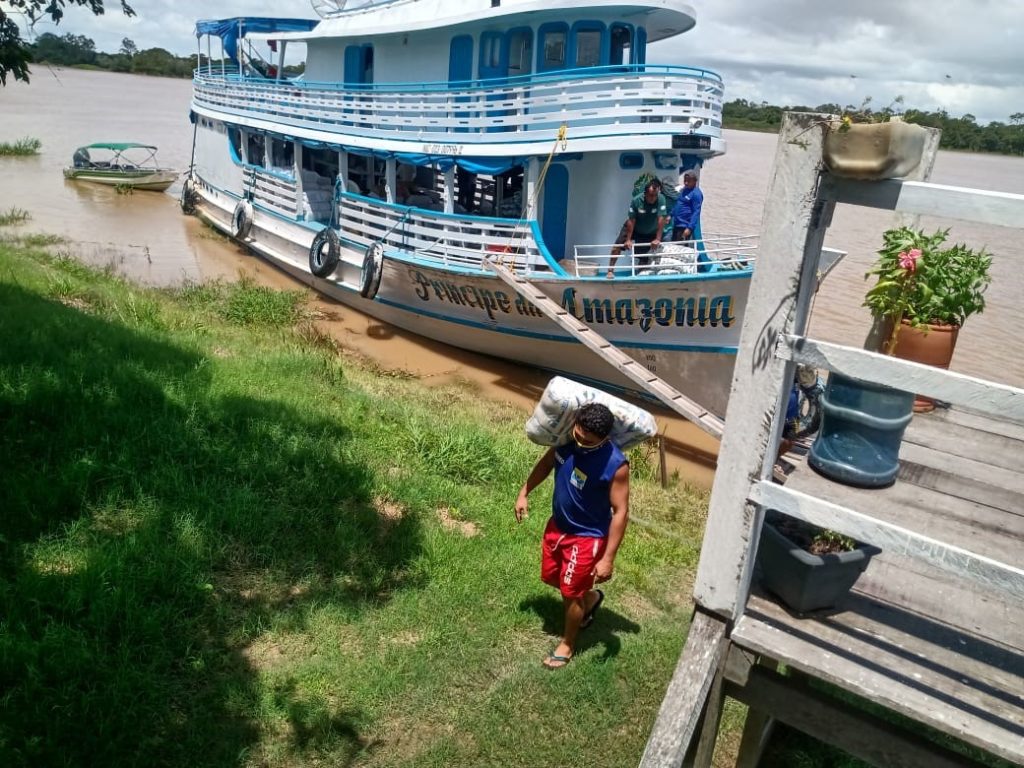
(municipality of the State of Pará, Amazonia Region, northern Brazil, population estimated at 308,500 inhabitants) a) Background The start of the pandemic and the closure of presential learning spaces and consequently of the offer of all services, including school meals, the different levels of government had to seek alternatives to the health emergency and minimize […]
RAES network can support school feeding in LAC and in the world, says Israel Ríos, nutrition officer of FAO Mesoamerica
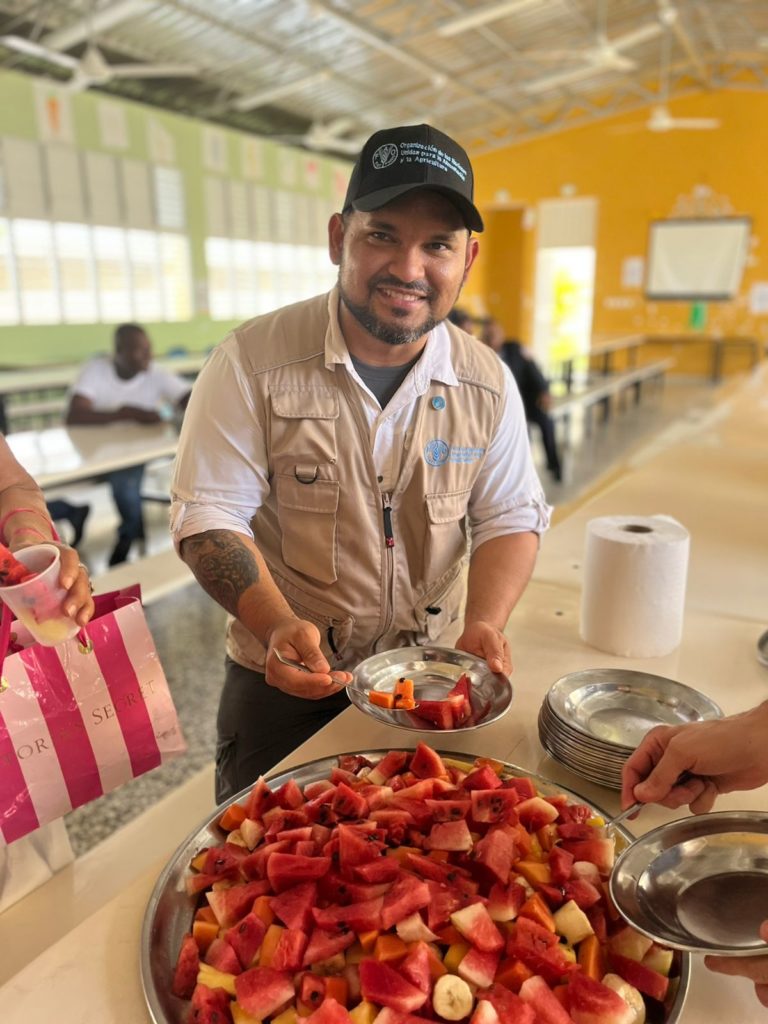
Paulo Beraldo The Sustainable School Feeding Network (RAES, for its acronym in Spanish) can support the consolidation and strengthening of school feeding not only in Latin America and the Caribbean, but also in other countries, evaluates Israel Ríos-Castillo, nutrition officer of the sub-regional office of the Food and Agriculture Organization (FAO) in Panama. In an […]
Mitigating the effects of the COVID-19 pandemic on food and nutrition of schoolchildren
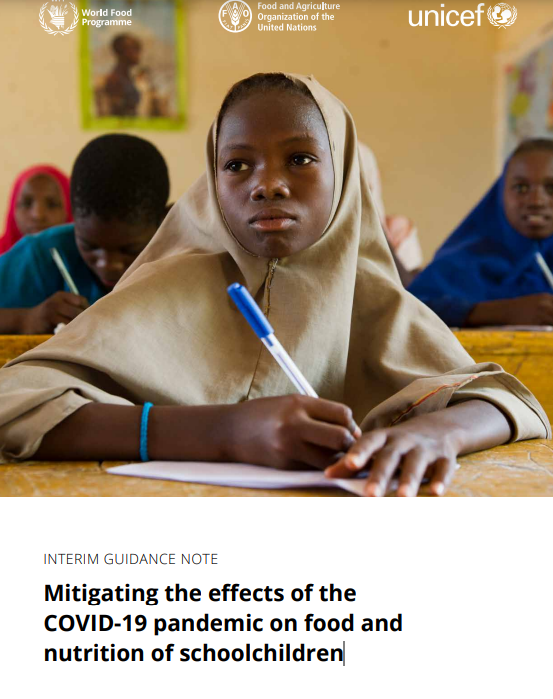
While cases of COVID-19 appear to be fewer among children (and symptoms generally milder), national responses to the pandemic can have important consequences for child nutrition and educational outcomes. Nearly 1.5 billion children – more than half of the world’s student population – are being kept away from school due to pandemic response measures. Nationwide […]
Legal Guide on school food and nutrition
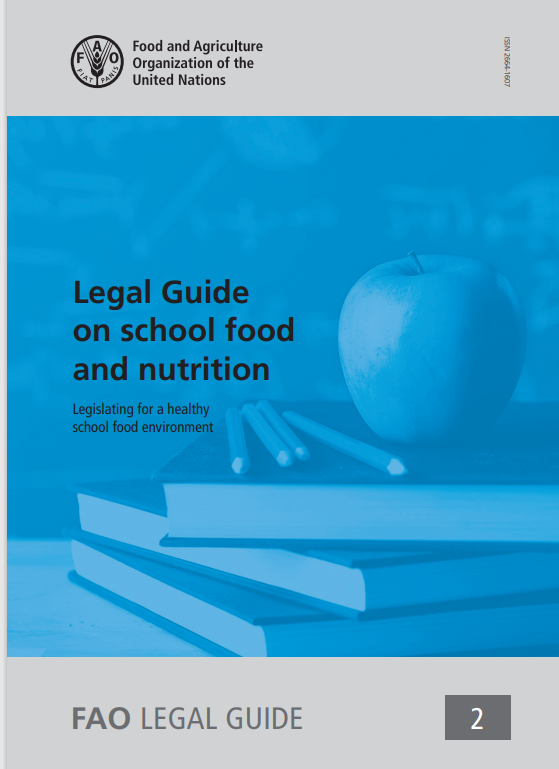
A solid international consensus has emerged on the importance of nutrition for children’s development and well-being. At the Second International Conference on Nutrition (ICN2), the Member States of the Food and Agriculture Organization of the United Nations (FAO) and the World Health Organization (WHO) committed to developing policies, programmes and initiatives to ensure healthy diets […]
Including gastronomy in the School Feeding Programme – A necessary change to guarantee children’s right to healthy, tasty and waste-free food
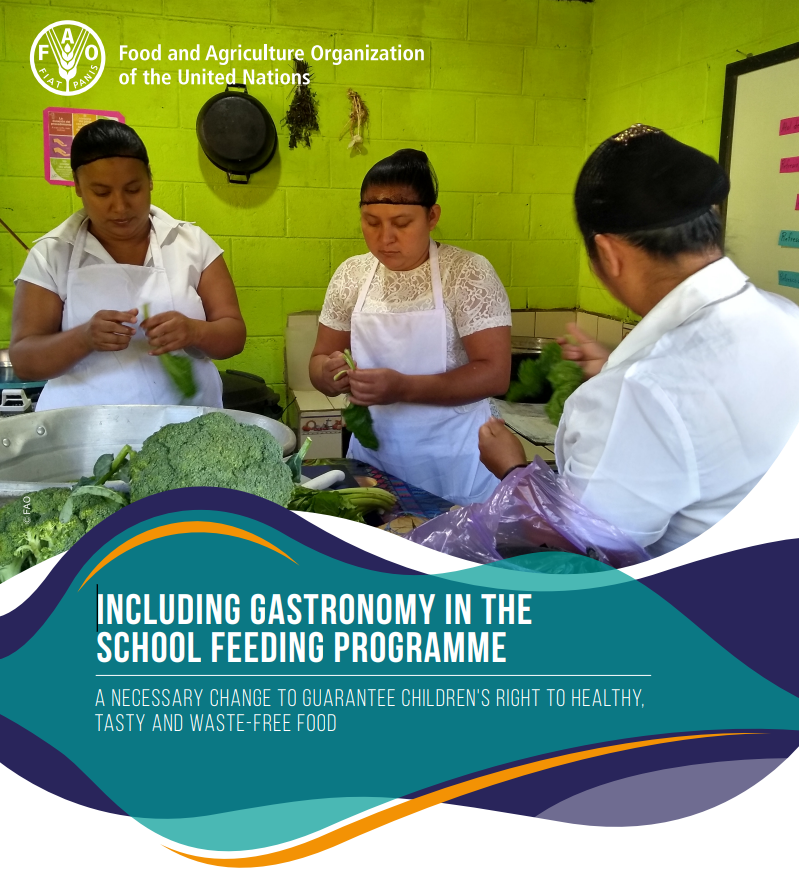
Each year, the Guatemalan State invests about 1 869.2 million Quetzals (USD 245 million) in the national School Feeding Programme (PAE, by its acronym in Spanish), which feeds 2.4 million children. This research estimates that, by including gastronomy in the PAE, it is possible to prevent in a school year (180 days), the waste of […]
Capacity needs assessment tool – School-based food and nutrition education
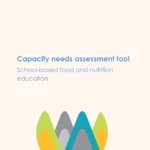
The capacity needs assessment tool is meant to be used by national and local groups as a foundation for the design of school-based food and nutrition education capacity development strategies. The tool builds on FAO’s experience and expertise in capacity development, and adopts a broad approach that not only assesses capacities at the individual level, […]
Scaling-up school feeding
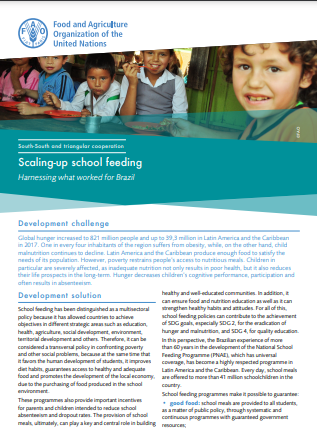
Marco de referencia de los elementos de Sostenibilidad divulgados por el Foro de Expertos sobre Programas de Alimentación Escolar Sostenibles para América Latina y el Caribe
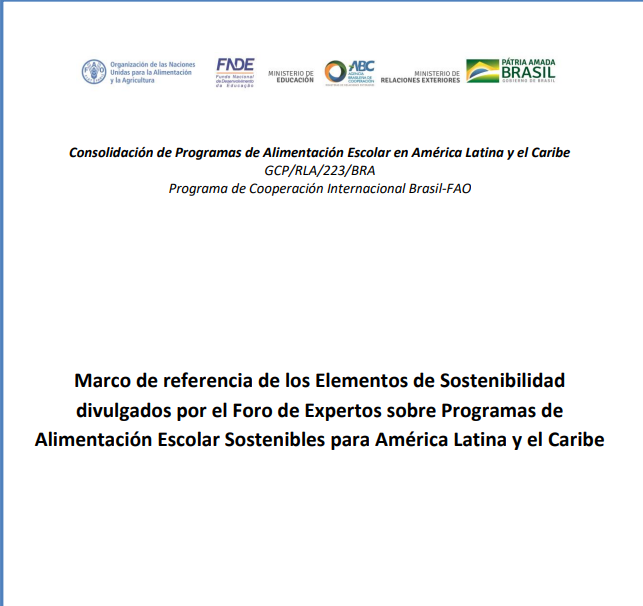
Evaluación Final del Proyecto GCP/RLA/180/BRA







